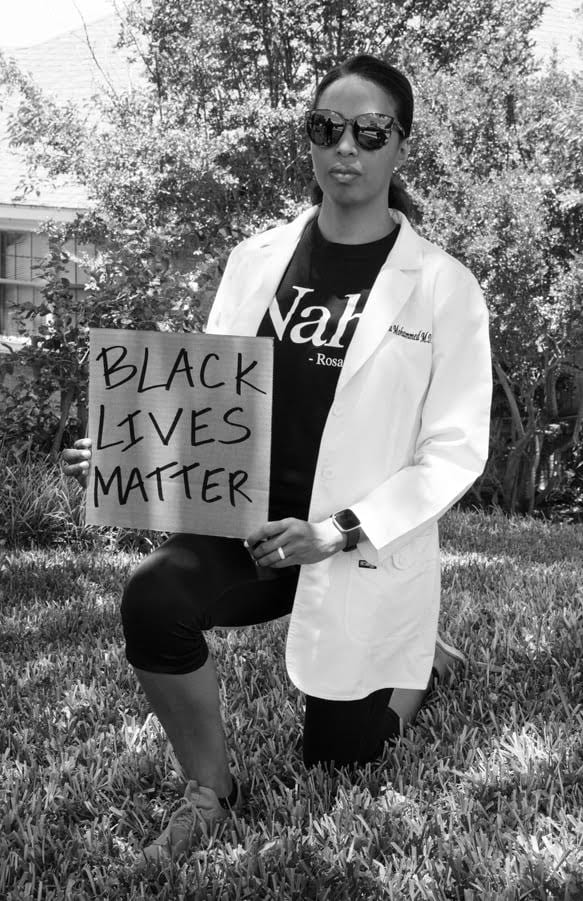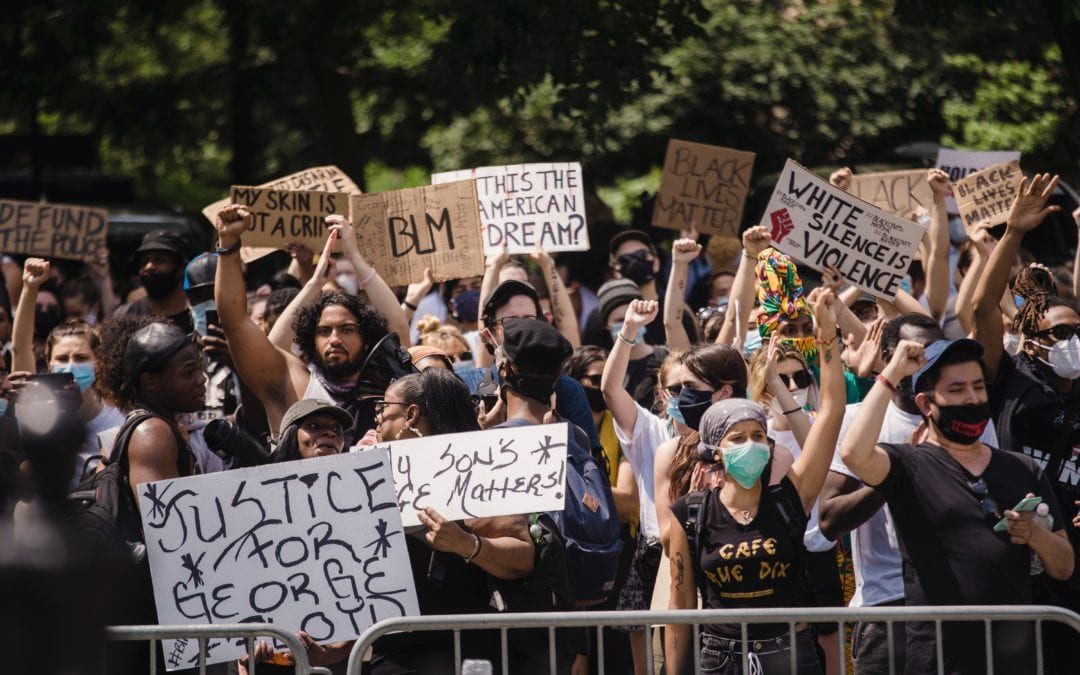WE will not be silenced. WE demand justice. I am a black woman; full of determination, passion, unwavering faith, strength and courage.
I kneel in solidarity. As it has been repeated time and time again, “It is clear that police brutality against black men and women is a significant public health emergency.“ As a health professional we must fight for all people and address these horrific atrocities that are taking place on a daily basis. I wanted to reflect on how important it is for us as women to stand up for ourselves. To speak when others don’t expect you to speak. Or when speaking often makes you look like in the eyes of others as the stereotyped complainer or angry black woman that can “never just be happy.” We still speak.
Being in the 4%
I am in the 4% of black female physicians. What does it mean to be black in society? Being black means, you can’t fail. If you do, then others will justify your failure as if it’s inherent or expected. You have to be better than the best of your colleagues. Proving you belong and not just viewed as a requirement for diversity in your organization. You work tirelessly de-identifying from the negative stereotypes placed on you, yet you see others embracing your black culture as “cool” when it suits them. You have to educate others on how to treat you without being viewed as aggressive. If you’re not smiling, maybe “something is wrong?”

I know that this may come to a shock to many people but these are just a few of the inner conversations that are going on in many of our minds from day to day. Now more than ever I have learned how to stand up for myself. They don’t teach any of this in residency or medical school. How do you prepare to treat someone who hates the color of your skin or gasps in awe when you walk into a room and you are not the assumed nurse, tech or janitorial staff (of course nothing is wrong with these careers but the assumption you are immediately one or the other is a problem).
When I stand boldly and say “I am your doctor.” This is the most gratifying feeling and an honor to serve others in my profession to the best of my ability. However, I have learned before, during and after having a white coat, there is racism & injustice. These are two very different words that people use interchangeably in the wrong ways.
It’s Time to Reflect
I encourage all that read this to reflect on what it means to advocate for me and my other sisters and brothers. Are you on the sidelines waiting on the change to unfold? Are you finding out more about your own racial biases and tendencies towards injustice in the way you may act or respond to people of color? Are you educating yourself about what it is like to be our skin? I hope so. I believe a change will come, but you must understand there are chains of injustice that have been tightened around my fellow black Americans for centuries, and the only way to break them is to stand with us in solidarity not just in times of convenience.
Dr. Amanda Mohammed, MD is a practicing Family Medicine Physician in Dallas, Texas. She enjoys traveling, visiting local coffee shops, volunteering, photography and live music. You can follow her on Instagram @dr.mandamo.





Well said Dr. Mohammed!
Thank you for sharing
– Monica
Thank you for your important thoughts. How can we bring these issues to the forefront of training? In medical school and residency, we often had patient scenarios to work through. These could be an important tool for addressing racism for all physicians, regardless of race. I am floored and upset when I refer a patient to a provider of color and their response is racist. If we discuss and play out these scenarios as a team of learner’s we can be better positioned to be anti-racist in our profession. Many of us realize that not being racist is not enough, especially in an influential role. But we don’t always know how. If we become more aware as physicians and role models, we can help build a more just place for our peers, our patients and ourselves. Not enough, but a start.
Thank you for expressing your heart, and I am proud to be a white sister MD who strongly agrees that BLACK LIVES MATTER but I know you rarely get treated like that is true. I am strongly encouraged with the younger generations now taking up the reins (I have just retired at 68, after working the majority of my MD life in Native clinics). If there is anything I can do for you , please feel free to get in touch. Medicine needs to change to bend away from the money machine it is becoming, and back to caring for those who need care.
Very well said! As a Black American female doctor. This hit home. It was very gratifying to hear another story so similar to mine. Thanks for sharing